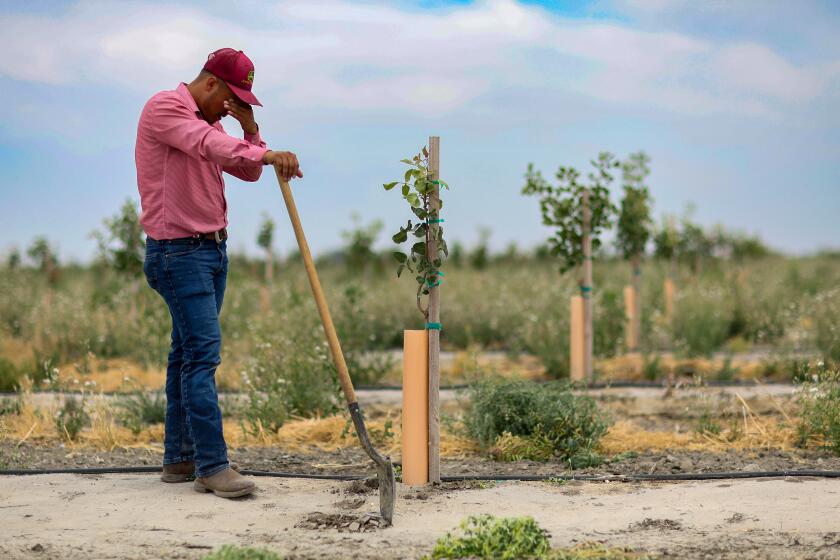Judge Says Murder Suspect, 18, Can Get Life Without Parole
The alleged triggerman in the drive-by slayings of two Saticoy men can be sentenced to life in prison without possibility of parole if he is convicted of first-degree murder, a Ventura County judge ruled Thursday.
The ruling by Superior Court Judge Allan L. Steele in the case of 18-year-old Edward (Tony) Throop, on trial for the slayings, was the second such finding in less than a week.
Last Friday, Superior Court Judge Frederick A. Jones ruled that Vincent Medrano, who is also charged with first-degree murder in the Saticoy slayings, could get a life sentence without parole if he is convicted of first-degree murder.
Medrano, 16, and Throop, who was 17 at the time of the killings, argued that state law forbids a sentence of life without parole for minors.
Medrano’s attorney, James Matthew Farley, has said he would appeal to the 2nd District Court of Appeal in Ventura. Deputy Public Defender Neil B. Quinn said he and two other attorneys representing Throop may join in the appeal.
Kevin G. DeNoce, who argued the case for the Ventura County district attorney’s office, said he expects the appeal court to take the case, and said it will probably go to the state Supreme Court.
“It is a close issue,” DeNoce said. “I can see a gray area there. . . . I expect the appeal court to take it.”
Steele and Jones upheld a portion of Proposition 115, approved by voters last year, that allows minors who commit heinous crimes to be sentenced to life without possibility of parole.
Farley and Quinn argued unsuccessfully that another initiative, Proposition 114, does not specifically allow such a penalty for minors. They said Proposition 114 should take precedence because it received more yes votes--about 71%, contrasted with 57% for Proposition 115. When two initiatives conflict, the law says the one that received more votes takes precedence.
Proposition 114’s stated purpose was to expand the definition of peace officer in the statute dealing with murder of law enforcement personnel. At the end of the initiative, it stated that the penalties for murder would be those defined in a separate section of the Penal Code.
Proposition 115 changed that penalty section to include life without parole for minors. Like Jones, Steele said the differences between the two initiatives did not constitute a conflict under the law.
Medrano’s trial is scheduled to start Tuesday but will probably be delayed by an appeal. Throop’s trial, which began Aug. 13, will resume Tuesday when the defense starts presenting its case.
Deputy Public Defender Christina Briles has acknowledged that Throop fired the .22-caliber rifle shots that killed Javier Ramirez, 18, and Rolando Martinez, 20. But she contends that there is insufficient evidence that the drunken youth intended to kill anyone, and that he is guilty of no more than second-degree murder. Second-degree murder does not carry the no-parole provision.
If Throop is convicted of first-degree murder and his appeal is still pending, he could be sentenced to life without parole. But if the issue is eventually resolved in his favor, he would have to be resentenced, DeNoce said.
Two other youths who accompanied the defendants have already been convicted. Joseph Scholle, 15, the only defendant who remained in the juvenile system, was convicted by Steele and was sentenced to the California Youth Authority. By law, he must be released by his 25th birthday.
Carlos Vargas, 16, pleaded guilty and agreed to testify against the others. In return, prosecutors agreed that they would not seek life in prison without parole when Steele sentences him on Dec. 6.
More to Read
Sign up for Essential California
The most important California stories and recommendations in your inbox every morning.
You may occasionally receive promotional content from the Los Angeles Times.






